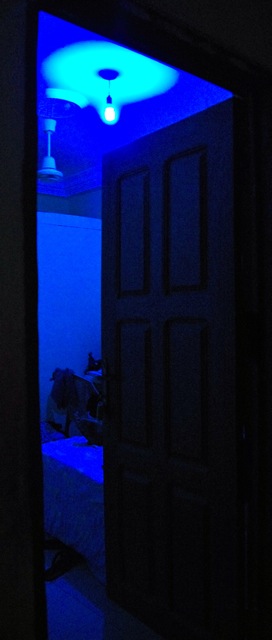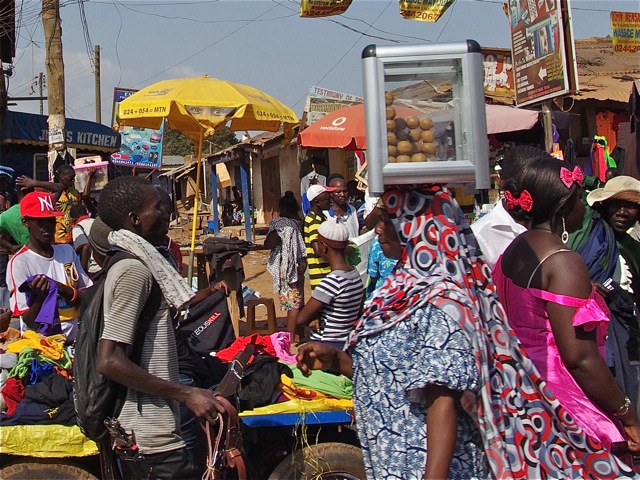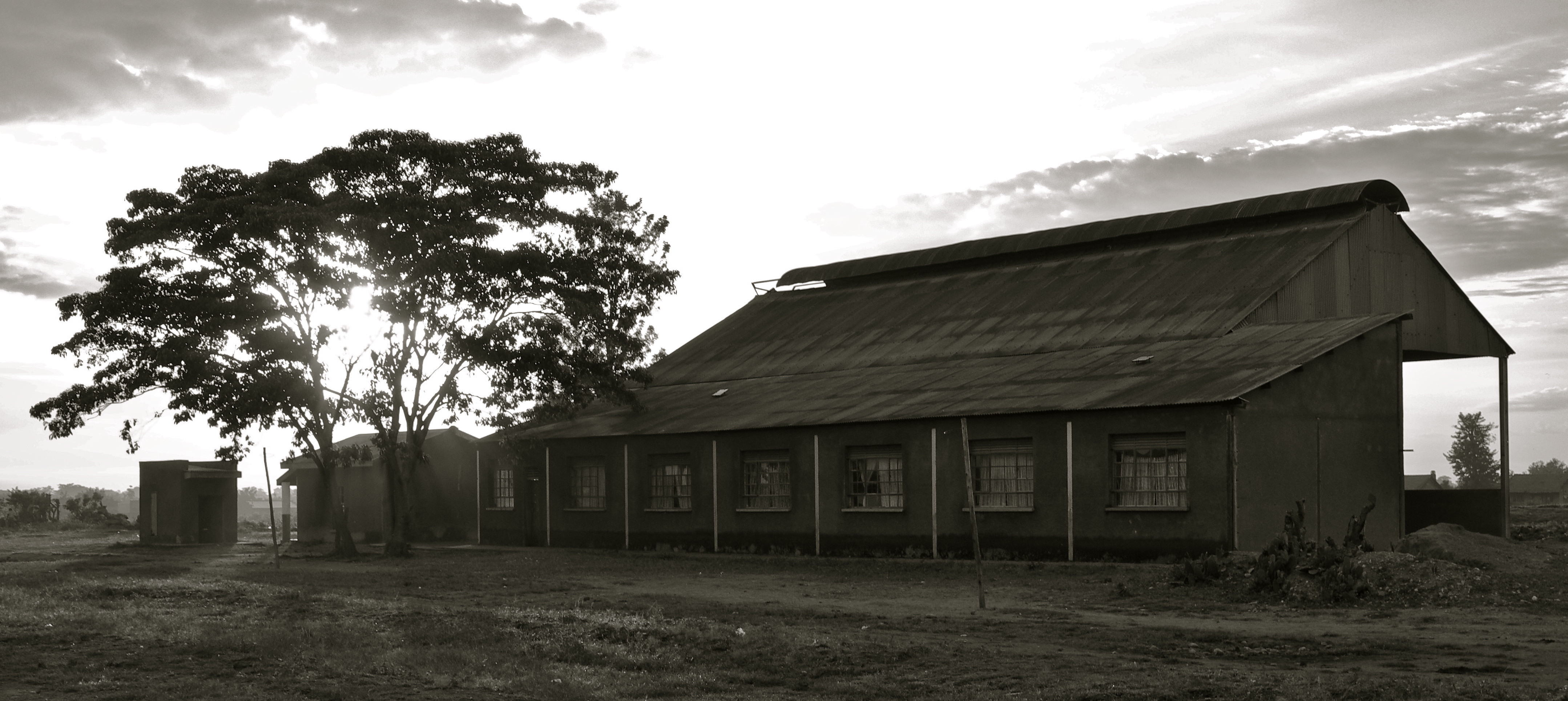Ghana is blue. I don’t mean it is sad, I mean it is tinted blue. So many light bulbs here are blue. I’m not talking in bars and clubs other places that are trying to achieve a certain atmosphere. I’m talking small shops that sell laundry powder and tomato paste.  I’m talking the bedroom at the guesthouse where we are staying. If we hadn’t exchanged the white light bulb from the bathroom, I think I might have gone mad from a week living bathed in blue light.
I’m talking the bedroom at the guesthouse where we are staying. If we hadn’t exchanged the white light bulb from the bathroom, I think I might have gone mad from a week living bathed in blue light.
When we arrived at this service location in Ghana, the Alliance for African Women Initiative (AFAWI), the co-ordinator, Philip, gave us an extensive cultural orientation. His most pressing advice was to greet everyone. Even strangers on the street. Especially old people. He said that if we don’t greet the shop owner next door when we pass on the way to the office and then need to do business with them, they might not acknowledge us. So for a few days we greeted literally everyone we passed. That got old fast and we’ve become more strategic. But Philip was right. The older people clearly appreciate and like it when we greet them. This is part of the culture of respect in Ghana. Philip explained that most Ghanians are a proud people who would rather take a dirty job than do something disrespectful like steal. Therefore they expect and deserve respect. I agree. Though Philip did warn us emphatically to be weary of pickpockets. There are always people willing to steal.
Ghana is loud. At Aroma, where we eat dinner every night, our conversation is accompanied by music blaring from the front of the restaurant and telenovelas dubbed into English blaring from the back. While we tried to hold a Teen Club meeting—our service project here, working with a local junior high school after school program—I could barely hear the students talk because of the roar of the students playing outside. I could be wrong, but none of the Ghanians present seemed affected by this noise pollution. At Aroma one of the servers likes to dance to the music while watching the television.
People really do carry things on their heads here. That image of Africa turns out to be true. In Uganda I saw people carrying bags five and six times the size of their heads on their heads. I saw women hauling full jerricans of water. With water splashing back and forth inside I don’t know how they kept balanced. In Ghana what is being carried on people’s heads constitutes an even greater level of impressiveness. Many people carry whole trays of food that they are selling. I’ve seen buckets of water and soda bottles. One man was carrying a table with the four legs hanging around his head like tassels. That’s right a man.  That image of Africa—of women carrying heavy loads on their heads— turns out not to be the whole truth. Women and men alike engage the practice. Impressively I’ve seen a man carrying a sewing machine on his head and a woman carrying five trays of eggs stacked on top of each other. What’s most impressive about the eggs is her confidence to carry them. We went to the beach one day and there were some acrobats performing for money—beach performers if you will. One of their stunts was for one to stand on the other’s head. It was impressive, but I wonder if it was less impressive for the Ghanians in the crowd for whom carrying things on one’s head is just a part of everyday life.
That image of Africa—of women carrying heavy loads on their heads— turns out not to be the whole truth. Women and men alike engage the practice. Impressively I’ve seen a man carrying a sewing machine on his head and a woman carrying five trays of eggs stacked on top of each other. What’s most impressive about the eggs is her confidence to carry them. We went to the beach one day and there were some acrobats performing for money—beach performers if you will. One of their stunts was for one to stand on the other’s head. It was impressive, but I wonder if it was less impressive for the Ghanians in the crowd for whom carrying things on one’s head is just a part of everyday life.
Just like in Uganda children are excited by our white skin. They yell the Ghanian equivalent of muzungu, obruni, and wave when we pass. Philip told us the adults really want to be our friends. They will want to be very hospitable to us. But, he warned, for their sake rather than ours, if they say, “you are invited”—in other words ask you to eat with them—they don’t mean it. They are being hospitable, but if we sat down with them it would likely be a hardship for them. If they insist on you joining them they genuinely want you to eat with them. The pervasive desire to be hospitable to whites is a legacy of colonialism. Because, he said, colonialism was not viewed as oppression. It was viewed “as an opportunity to see another color.”
To conclude our orientation Philip warned us not to use the word “silly” explaining that it is a great insult here. I don’t want to insult anyone and silly is an not exceptionally common word in my lexicon. But ever since he told me I can’t say silly, every circumstance I encounter cries out, “this is silly.” I find some of my greatest joys in silly things. And I find blue light bulbs, carrying very breakable eggs on one’s head, and telenovelas constantly broadcasting in Ghana excessively silly—in the American English sense. I do believe my silly tongue will get me in trouble here.
